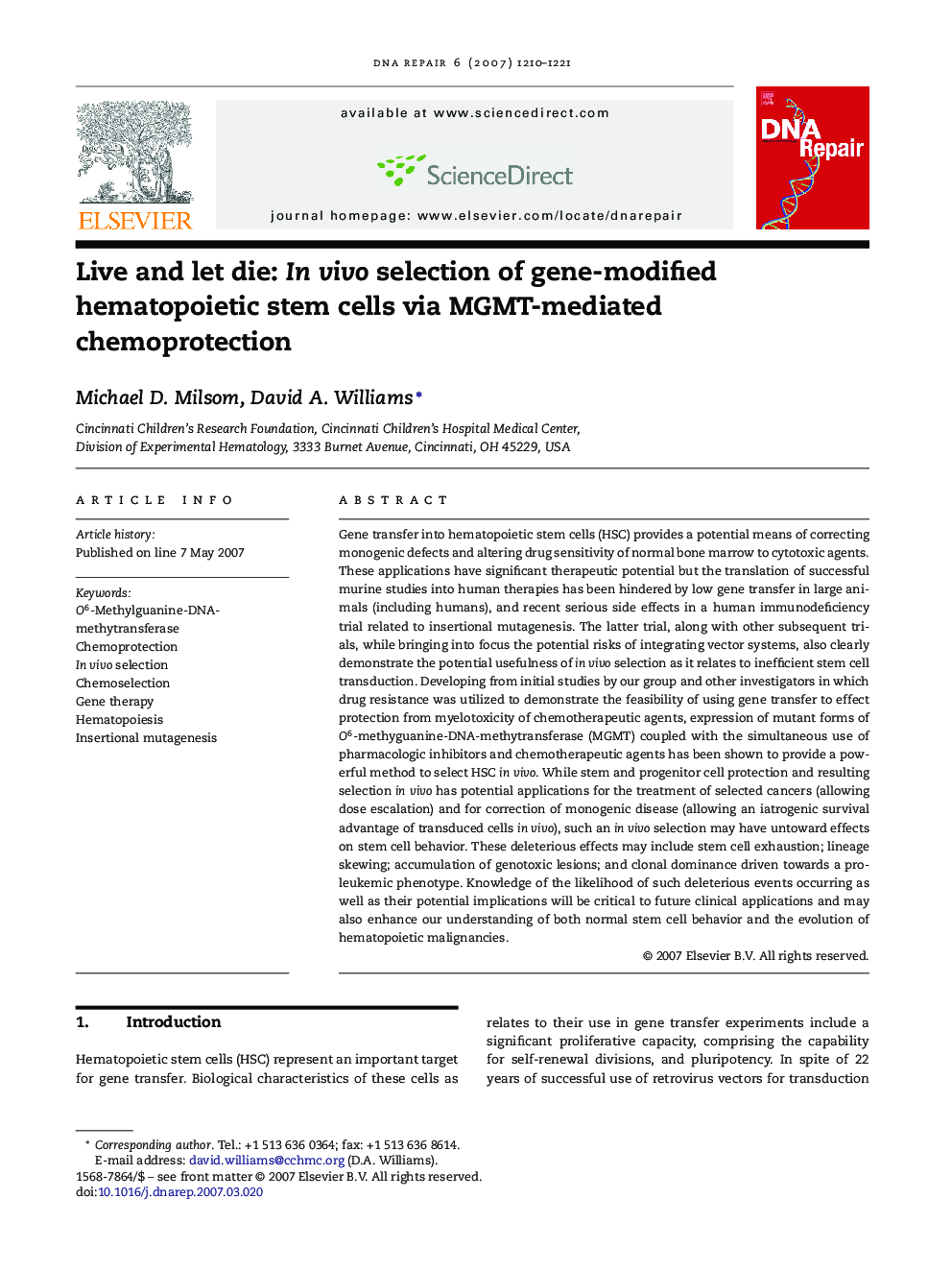| کد مقاله | کد نشریه | سال انتشار | مقاله انگلیسی | نسخه تمام متن |
|---|---|---|---|---|
| 1981417 | 1061928 | 2007 | 12 صفحه PDF | دانلود رایگان |

Gene transfer into hematopoietic stem cells (HSC) provides a potential means of correcting monogenic defects and altering drug sensitivity of normal bone marrow to cytotoxic agents. These applications have significant therapeutic potential but the translation of successful murine studies into human therapies has been hindered by low gene transfer in large animals (including humans), and recent serious side effects in a human immunodeficiency trial related to insertional mutagenesis. The latter trial, along with other subsequent trials, while bringing into focus the potential risks of integrating vector systems, also clearly demonstrate the potential usefulness of in vivo selection as it relates to inefficient stem cell transduction. Developing from initial studies by our group and other investigators in which drug resistance was utilized to demonstrate the feasibility of using gene transfer to effect protection from myelotoxicity of chemotherapeutic agents, expression of mutant forms of O6-methyguanine-DNA-methytransferase (MGMT) coupled with the simultaneous use of pharmacologic inhibitors and chemotherapeutic agents has been shown to provide a powerful method to select HSC in vivo. While stem and progenitor cell protection and resulting selection in vivo has potential applications for the treatment of selected cancers (allowing dose escalation) and for correction of monogenic disease (allowing an iatrogenic survival advantage of transduced cells in vivo), such an in vivo selection may have untoward effects on stem cell behavior. These deleterious effects may include stem cell exhaustion; lineage skewing; accumulation of genotoxic lesions; and clonal dominance driven towards a pro-leukemic phenotype. Knowledge of the likelihood of such deleterious events occurring as well as their potential implications will be critical to future clinical applications and may also enhance our understanding of both normal stem cell behavior and the evolution of hematopoietic malignancies.
Journal: DNA Repair - Volume 6, Issue 8, 1 August 2007, Pages 1210–1221